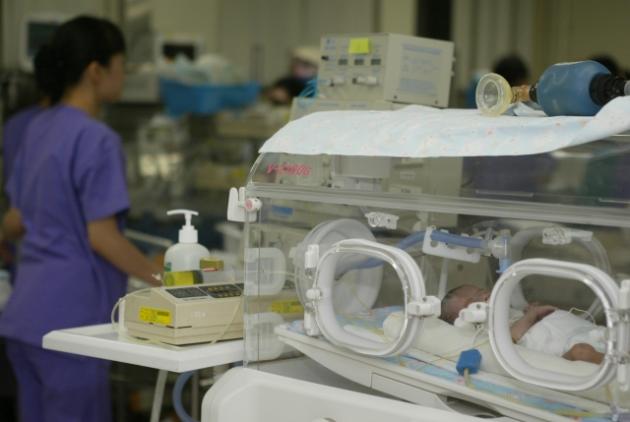Despite the increasing need for medical care for preterm infants, neonatal intensive care units (NICU) are in shortage in many provinces in Korea, a lawmaker said Friday.
According to Rep. Nam In-soon of the ruling Democratic Party who reviewed the Ministry of Health and Welfare’s data, infants weighing under 2.5kg accounted for 5.9 percent of the total 406,243 babies born last year, up from 5.5 percent in 2013. The preterm infants took up 7.2 percent of the total in 2016, up from 6.5 percent in 2013.

The data also showed that the average age of first-time mothers rose to 32.4 in 2016 from 31.8 in 2013. Those in the late 30s between 35 and 39, in particular, took up a more significant share among all first-time mothers to 48.7 per 1,000 in 2016 from 39.5 in 2013.
The number of parents having fertility problems also went up to 220,000 last year from 200,000 in 2013, which raises the need for NICUs with more births of low-weight or preterm infants.
“Last year, Korea expanded the medical insurance coverage for NICU, allowing expensive equipment such as high-frequency ventilators and high-performance neonatal incubators to be covered by insurance. But NICUs are in shortage in some provinces,” said Nam.
She said Gyeonggi, Inchon, North Chungcheong Province, Gwangju and South Jeolla Province are in need of 149 more NICUs.
Gyeonggi Province has 345 NICUs, 98 short of the optimal level of 443, according to Nam. Incheon needs 99, while only 80 units are available now. North Chungcheong Province needs 23 more NICUs than the current 30, she said. Gwangju and South Jeolla Province needs nine more NICUs than the current 98.
Nam also noted that Korea suffers a severe regional gap in the supply of NICUs.
Korea needs an average 3.9 NICUs per 1,000 newborns, but the number was much higher in major cities such as 7.1 in Seoul, 6.4 in Daejeon and 5.6 in Daegu. In contrast, the figure was low at 0.7 in South and North Jeolla Province, respectively, 1.8 in North Chungcheong Province and 2.1 in Ulsan.
“The government had supported to install 50 new NICUs every year until last year. This year, however, only 15 have been added out of the annual target of 25,” Nam said.
The 2018 budget does not allocate a spending on NICU establishments covering only their operational costs of 3.56 billion won ($3.14 million), she said, urging the government to secure an extra budget to ensure more NICUs.
Nam said NICUs require a double number of residing medical staffs than other wards, which gives heavier financial pressure on hospitals that operate NICUs.
“We need to raise the state support of medical payments for NICUs,” she added.

